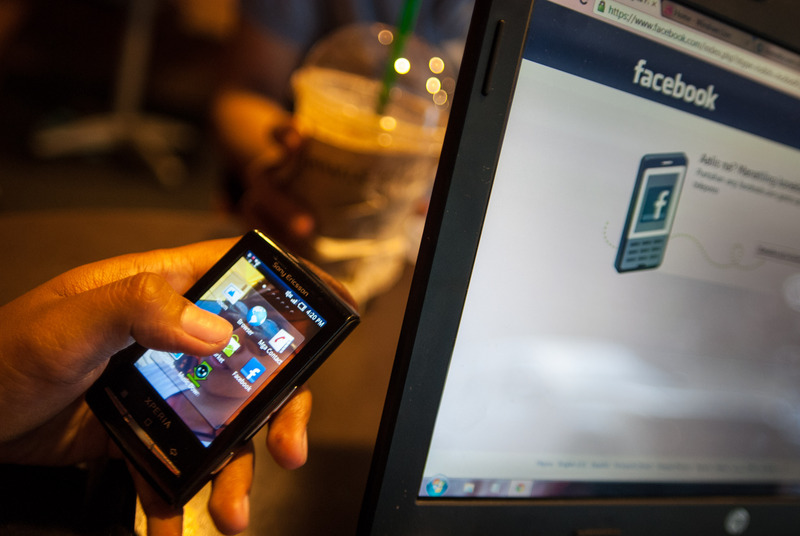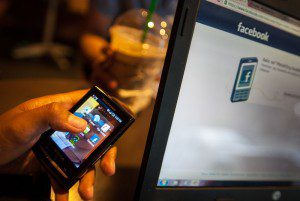22 Oct 2013 | Comment, Digital Freedom, News and features

The question anyone who defends free speech gets asked most frequently is “Where do you draw the line?”
The announcement by Facebook today that it will allow users to post videos of beheadings is bound to raise that question.
So where do we draw the line? The answer is that it is nigh-on impossible, when discussing free speech, to take general positions on any specific kind of speech or content. One must always look at the context.
Facebook’s own statement reflects this:
“Facebook has long been a place where people turn to share their experiences, particularly when they’re connected to controversial events on the ground, such as human rights abuses, acts of terrorism and other violent events,” the company said in a statement.
“People share videos of these events on Facebook to condemn them. If they were being celebrated, or the actions in them encouraged, our approach would be different.”
This might sound frustrating, particularly when, as the Guardian’s Jonathan Freedland points out, you contrast it with Facebook’s oft-cited banning of pictures of breastfeeding women.
But the blocking of breastfeeding pictures illustrates exactly the problem with drawing arbitrary lines on free speech. One can see a certain logic behind not allowing pictures of bare breasts; Facebook doesn’t want its platform to be given over to soft and hard porn; but most adults realise that images of bare breasts are not necessarily pornographic. Facebook policy, by the way, is not to ban pictures of breastfeeding women. But they admit to making mistakes and removing content that should not be removed. They do have a blanket ban on nudity.
Not every video of extreme violence can be automatically categorised as “snuff”, and there is an argument that if one wants to discuss brutality, one must be able to see it. Perhaps in an attempt to counter claims that allowing beheading videos to be viewed would somehow create a market for them, Facebook has said it will not allow videos posted by people seeking to praise the content. This, in terms of the free speech argument, yet again raises questions about the use and abuse of the notion of “glorification of terrorism” laws. We’re back to attempting to draw lines.
Debates over what is and isn’t “acceptable” free speech will never go away. And we will never honestly establish where the “line” is. Any discussion should begin with the premise of free speech as an absolute, and, if necessary, tiptoe backwards cautiously from there.
This article was originally posted on 22 Oct 2013 at indexoncensorship.org
12 Aug 2013 | Digital Freedom, India, News and features
The New Delhi High Court has given Facebook and Google one month to submit suggestions on how minors can be protected online in India.
This move is in response to a Public Interest Litigation (PIL) filed by KN Govinacharya, a senior member of the right wing political party, the Rashtriya Swayamsevak Sangh.
The PIL seeks to protect citizens of India from cyber crimes, which according to the government, has cost the exchequer $4 billion last year. Some of the highlights include the PIL pointing out that despite guidelines given by the government for companies to follow the KYC normal (“know your customer”), social networking companies do not follow them. The PIL believes that Facebook is not verifying its users, and instead allowing minors to set up accounts because it uses them for marketing, advertising, and data mining purposes.
Under Indian law, children under 13 are incompetent to enter into any legal contract, yet it states that Facebook allows children to sign into its website unverified because it seeks to make revenue from them through online gaming – and this is a direct reference to a contract between Facebook and Zynga to provide gaming applications to kids that accounts for 12.5% of Facebook revenue. The PIL stipulates that through incessant data mining through the unauthorized use of emails, photographs, passwords, chats, and so on, Facebook is infringing on the right to privacy of the Indian subscriber.
The bench of the Delhi High Court took the PIL seriously in light of the allegation that minors are entering into social media networking sites and are then being lured into illegal activities, either knowingly or unknowingly. According to reports the court’s direction came after counsel for Facebook  submitted that the site operated under the US law Children’s Online Privacy Protection Act (COPPA) as per which a child below 13 is not allowed to open an account. The Court expressed unhappiness that there is no mechanism that currently exists to verify the age of a child online, and that while children were protected in the US, what of the children in India.
submitted that the site operated under the US law Children’s Online Privacy Protection Act (COPPA) as per which a child below 13 is not allowed to open an account. The Court expressed unhappiness that there is no mechanism that currently exists to verify the age of a child online, and that while children were protected in the US, what of the children in India.
Facebook filed a counter-affidavit to the PIL and argued that limiting social media can limit an individual’s freedom of speech and expression. Drawing on the UN Human Rights Council’s resolution that internet is a human right, Facebook has argued that the “internet is increasingly becoming a platform for citizens including minors to interact and voice their opinions and, therefore, a meaningful interpretation of the right to freedom of speech and expression would include the freedom to access social media.”
However, cyber lawyer Pavan Duggal points out that despite the freedom of expression argument, “the issue still remains that a minor doesn’t have the capacity to act under the Contract Act.” Others have pointed out that users enter into agreements with Facebook and social networking sites, not contracts. Further, law professor Saurav Datta feels that the PIL’s suggestion that all users be verified itself impinges on their privacy, and that it, “the goal of the PIL is wrong. We need to protect children, not keep people out.”
Moving ahead, it remains to be seen what social networking sites can suggest for protecting minors online. At the same time, it seems educating minors about the dangers of the internet is a good way forward as well. Facebook has joined the Internet and Mobile Association of India to bring an Internet Safety Education programme for children between the ages of 13-17. Even though this was not designed as a response to the PIL, it certainly seems a step in the right direction, regardless of the Court’s decision.
18 Jul 2013 | Digital Freedom, News and features, Pakistan
A Pakistani human rights organisation has called for an investigation into an alleged “secret censorship deal” between the country’s government and Facebook. Sara Yasin reports
According to Bytes for All (B4A), a representative of the Pakistan Telecommunication Authority claimed on 4 July that “the government of Pakistan has an existing ‘arrangement’ with Facebook, which allows them to have ‘undesirable content and Facebook pages blocked as per directions from the authority”.
In an open letter to the Global Network Initiative (GNI) — of which Facebook is a member — B4A said that if true, it is “betrayal by the company towards the users of Facebook in Pakistan. The claim is upsetting because if true, it breaches the trust of its users, vehemently opposes what Facebook publicly proclaims in its principles, and is in stark contrast to the social network’s commitment to freedom of expression, peaceful assembly, and association as a member of the Global Network Initiative”.
On 22 May, at this year’s Stockholm Internet Forum, it was announced that Facebook would join the GNI — a multi-stakeholder group dedicated to promoting and defending freedom of expression in the Information and Communication Technology (ICT) sector.
“As the largest social network, both in Pakistan and the global cyberspace, we feel that Facebook following its own principles and the principles of GNI can go a long way in ensuring that citizen’s right to access, privacy, and freedom of expression are preserved even under hostile and difficult environments”, said B4A.
B4A has also been embroiled in a battle to reverse a September 2012 decision to block YouTube. The country decided to block the video sharing site for refusing to take down a clip from controversial anti-Islam film “Innocence of Muslims.”
Sara Yasin is an Editorial Assistant at Index. She tweets from @missyasin
25 Jun 2013 | Digital Freedom, Europe and Central Asia
Should search engines be forced to block results that link to newspaper articles? No, the Advocate General of the European Court of Justice said earlier today, deciding Google need not block “legal and legitimate information that has entered the public domain”. Brian Pellot writes
(more…)


 submitted that the site operated under the US law Children’s Online Privacy Protection Act (COPPA) as per which a child below 13 is not allowed to open an account. The Court expressed unhappiness that there is no mechanism that currently exists to verify the age of a child online, and that while children were protected in the US, what of the children in India.
submitted that the site operated under the US law Children’s Online Privacy Protection Act (COPPA) as per which a child below 13 is not allowed to open an account. The Court expressed unhappiness that there is no mechanism that currently exists to verify the age of a child online, and that while children were protected in the US, what of the children in India.